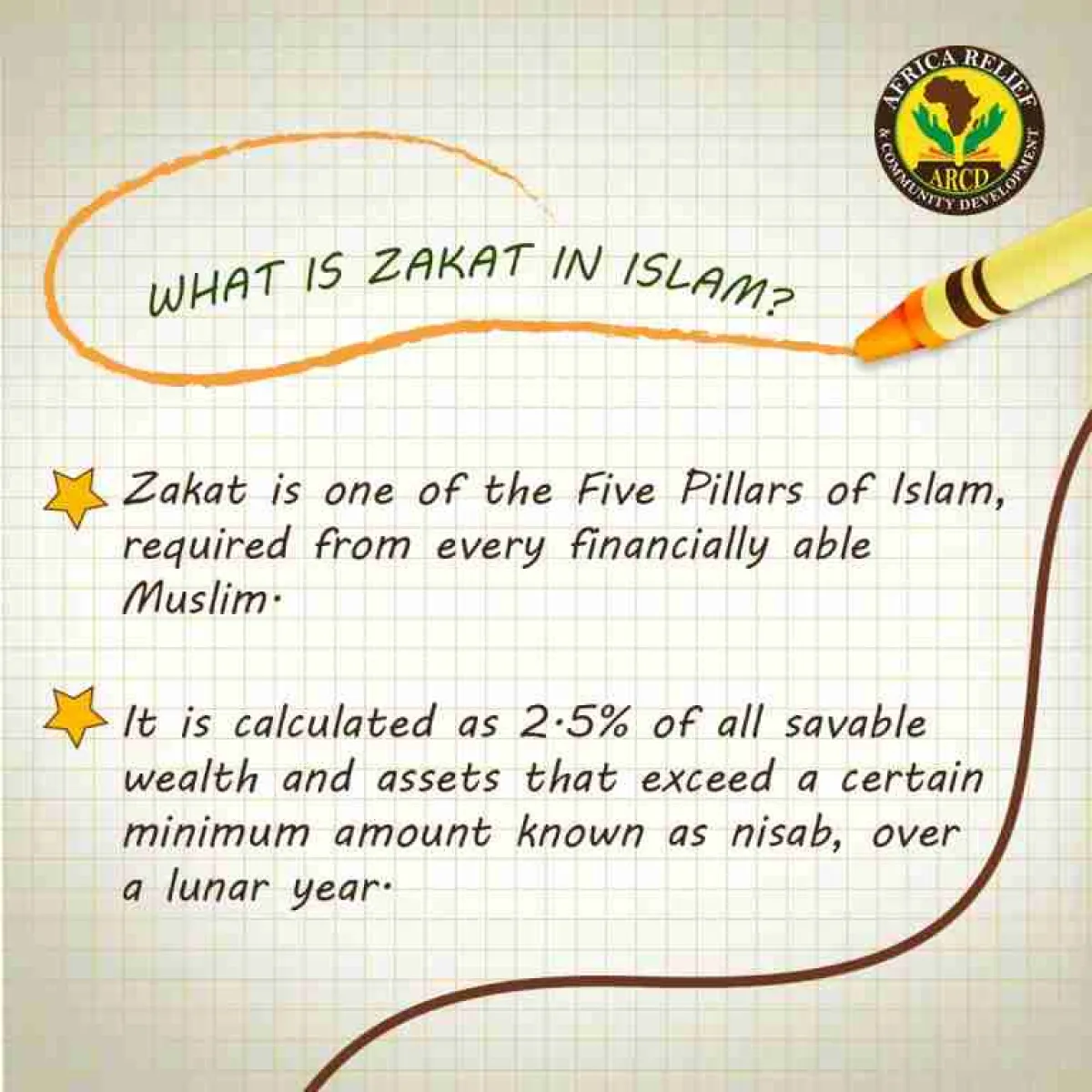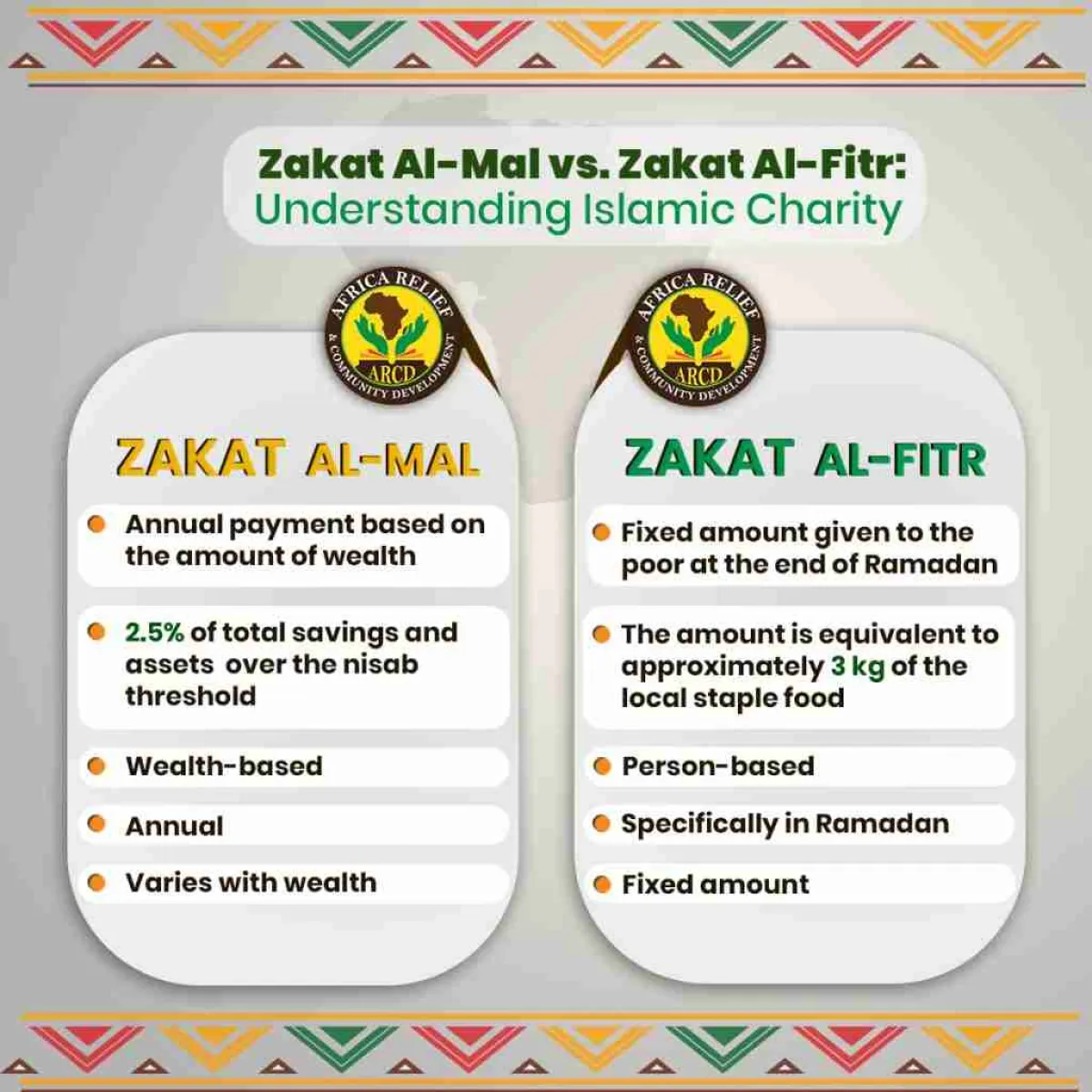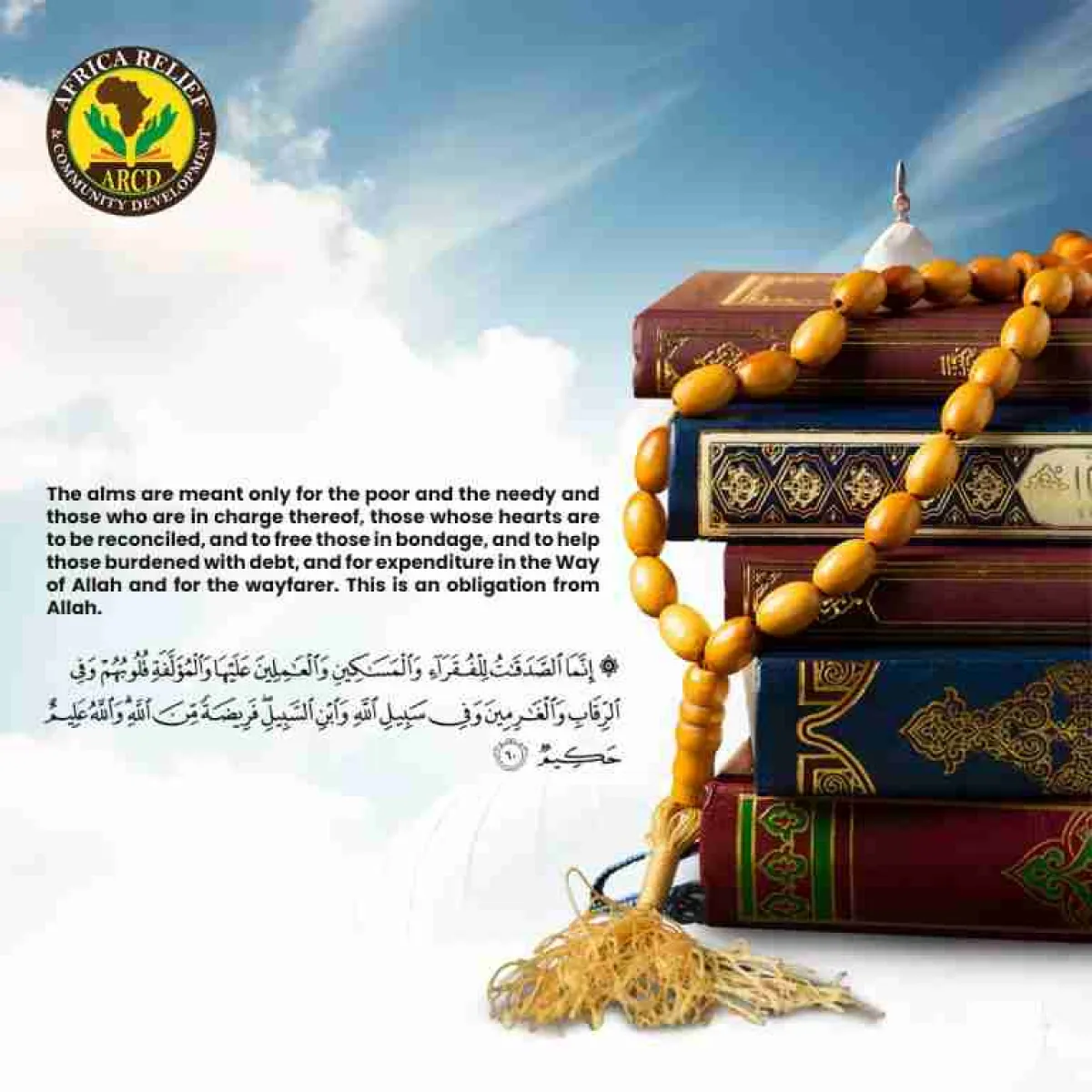What is zakat in Islam? This question opens the door to exploring one of the Five Pillars of Islam, illuminating its profound significance in Muslim faith and practice. Zakat, an essential Islamic charity, signifies the ‘purification of wealth’ and ‘growth,’ marking it as a mandatory act prescribed in Islam for financial and spiritual cleansing.
Zakat exemplifies the Islamic dedication to social welfare and economic justice, offering ‘benefits of zakat’ that extend beyond mere financial aid.
We uncover not only the mechanisms of zakat but also the spirit of compassion and community it fosters. Embrace the practice of ‘mandatory zakat,’ a cornerstone of faith that purifies wealth and brings hope and solidarity to the Islamic world. Let’s contribute to this noble ‘Islamic charity,’ ensuring our wealth’s purification and growth by aiding those in need.
What is zakat in Islam?

Zakat is defined as a compulsory act of charity and one of the Five Pillars of Islam, required from every financially able Muslim. It involves donating a fixed portion of one’s wealth to those in need, with the primary aim of purifying the giver’s wealth and soul from selfishness and greed.
It is calculated as 2.5% of all savable wealth and assets that exceed a certain minimum amount known as nisab, over a lunar year.
Zakat in Quran and hadith
The foundations of zakat are deeply embedded in the Quran and Hadith, which provide the essential guidelines and spiritual context for this pillar of Islam. We explore how zakat is presented in these primary sources.
Zakat in the Quran

- The concept of ‘purification of wealth’ through zakat
“Take, [O, Muhammad], from their wealth a charity by which you purify them and cause them increase, and invoke [Allah ‘s blessings] upon them. Indeed, your invocations are reassurance for them. And Allah is Hearing and Knowing. (Surah At-Tawbah, 9:103)
- Divine Commandment
The Quran frequently pairs zakat with prayer (Salah), emphasizing its importance as an act of worship.
For example:
“And establish prayer and give zakat, and bow with those who bow [in worship and obedience].” - Surah Al-Baqarah (2:43) commands
- Eligibility and Purpose
Several verses detail the obligation of zakat and its purpose to purify wealth and aid the needy.
Surah At-Tawbah (9:103) states,
“Take, [O, Muhammad], from their wealth a charity by which you purify them and cause them increase, and invoke [Allah’s] blessings upon them. Indeed, your invocations are reassurance for them. And Allah is Hearing and Knowing.”
- Warning Against Non-Payment
The Quran also warns against the hoarding of wealth and the refusal to pay zakat, highlighting the consequences in the hereafter for those who neglect this duty, as mentioned in Surah At-Tawbah (9:34-35)
“Those who hoard gold and silver and spend it not in the way of Allah – give them tidings of a painful punishment. On the Day when it will be heated in the fire of Hell and seared therewith will be their foreheads, their flanks, and their backs, [it will be said], ‘This is what you hoarded for yourselves, so taste what you used to hoard.”
Zakat in the Hadith:
- The spiritual and worldly ‘benefits of zakat
Charity does not in any way decrease the wealth and the servant who forgives, Allah adds to his respect; and the one who shows humility, Allah elevates him in the estimation (of the people).
- Encouragement and Rewards “
If one gives in charity what equals (the size of) one date-fruit from the honestly-earned money and Allah accepts only the honestly earned money –Allah takes it in His right (hand) and then enlarges its reward for that person (who has given it), as anyone of you brings up his baby horse, so much so that it becomes as big as a mountain.” (Sahih Bukhari, Vol 2, Book 24, No. 491)
- Rates and Recipients
“Sadaqah (zakat) is only for the poor, the needy, those employed to collect [zakat], to attract the hearts of those who have been inclined (towards Islam), to free the captives, for those in debt, for Allah’s cause (fi sabilillah), and for the wayfarer.” (Sahih Bukhari, Book 24, Hadith 557)
- Other Popular Hadith About Zakat:
“The wealth of a person does not decrease by paying Zakat” (Sahih Bukhari) “One who pays Zakat, Allah will make their wealth increase” (Sahih Bukhari) “The best charity is to pay Zakat on one’s wealth” (Sahih Muslim) “Zakat is a right that the poor have upon the rich” (Sahih Bukhari) “Giving Zakat is more beloved to Allah than giving in charity during the entire year” (Sahih Bukhari)
Importance of zakat in Islam
As a fundamental pillar of Islam, zakat is not only a religious obligation but also a means to forge a just society where the circulation of wealth ensures no individual is left in dire need.
- Spiritual Purification: Zakat cleanses the giver’s wealth and soul, fostering a connection with God.
- Economic Equity: It redistributes wealth, reducing the gap between the rich and the poor, ensuring everyone’s needs are met.
- Social Cohesion: Strengthens community bonds by reminding the wealthy of their duty to support the less fortunate.
- Gratitude and Generosity: Cultivates thankfulness and a willingness to share, nurturing a compassionate community.
- Prevention of Hoarding: Ensures money circulates within the economy, preventing the accumulation of wealth by a few.
- Divine Commandment: A mandated act of worship, expressing submission to God’s will and commitment to Islamic principles.
Types of zakat

In Islamic tradition, zakat is categorized mainly into two types: Zakat al-Mal (Zakat on Wealth) and Zakat al-Fitr (Zakat on the Person). Below is an overview of each type:
Zakat al-Mal is the annual zakat due on a Muslim’s accumulated wealth over a lunar year. It is payable by those whose wealth exceeds a certain minimum threshold, known as nisab, and includes assets such as cash, gold, silver, business commodities, livestock, and agricultural produce, among others.
Zakat al-Fitr, also known as Fitrana, is a form of zakat that is paid by Muslims at the end of Ramadan, before the Eid al-Fitr prayer. It is obligatory for every Muslim, regardless of age or financial status, provided they have surplus food over their needs.
Through Zakat al-Mal and Zakat al-Fitr, Islam fosters a society marked by compassion, mutual support, and social justice.
8 categories of zakat recipients in Quran
The eight categories of zakat recipients are outlined in the Quran in Surah At-Tawbah (9:60), which specifies who is entitled to receive zakat. The ayah (verse) is as follows:
“Zakat expenditures are only for the poor and for the needy and for those employed to collect [zakat] and for bringing hearts together [for Islam] and for freeing captives [or slaves] and for those in debt and for the cause of Allah and for the [stranded] traveler – an obligation [imposed] by Allah. And Allah is Knowing and Wise.”
This verse establishes a comprehensive framework for the distribution of zakat, ensuring it supports those in dire need and fosters the overall welfare of the Muslim community.
Who is eligible for zakat?

- The Poor (Al-Fuqara) - This category includes individuals who have insufficient means to meet their basic needs. The poor may struggle for essentials such as food, clothing, and shelter.
- The Needy (Al-Masakin) - The needy are those who, although they may have some income or assets, still cannot cover their basic needs. They are in a slightly better position than the poor but still require assistance to maintain a decent standard of living.
- Zakat Administrators (Al-Amilina ‘Alaiha) - These are the individuals or organizations appointed to collect, manage, and distribute zakat. Their work ensures that zakat reaches its rightful recipients, and they are compensated from the zakat fund for their services.
- Those Whose Hearts Are to Be Reconciled (Al-Muallafatu Qulubuhum) - This group includes new converts to Islam and those who are inclined towards entering the faith. Zakat funds may be used to strengthen their faith and help integrate them into the Muslim community.
- The Captives (Ar-Riqab) - Zakat can be used to free slaves or captives. In the modern context, this category extends to individuals oppressed or wrongfully imprisoned, aiding in their release and rehabilitation.
- Those in Debt (Al-Gharimin) - Individuals burdened by overwhelming debt, incurred through no fault of their own or for a noble cause, can receive zakat to help them regain financial stability.
- In the Cause of Allah (Fi Sabilillah) - This category is for those working in the path of Allah, such as those engaged in Islamic education, da’wah (Islamic missionary work), or jihad (in its context as striving in the path of God, including non-violent efforts for justice and peace).
- The Wayfarer (Ibn As-Sabil) - Travelers or migrants who are cut off from their resources and cannot return home can benefit from zakat to meet their travel expenses or to help them settle.
These categories ensure zakat serves as a comprehensive social welfare system, addressing various needs within the community. Eligibility for receiving zakat is determined by need and circumstance, rather than creed, race, or nationality, underscoring Islam’s emphasis on compassion and human dignity.
More Resources about Zakat
- What is Zakat al mal – Your Guide with Africa Relief: https://africa-relief.org/what-is-zakat-al-mal/
- Zakat al-Mal vs Zakat al-Fitr: Fulfill Your Islamic Duties: https://africa-relief.org/zakat-al-mal-vs-zakat-al-fitr/
- Recipients of Zakat: Understanding Eligibility and Importance in Islam: https://africa-relief.org/recipients-of-zakat/
- Zakat on gold in islam: how to calculate and pay: https://africa-relief.org/zakat-on-gold-in-islam/
As we’ve explored the profound impact and significance of zakat in supporting those in need within our communities, we urge you to consider directing your zakat contributions towards the upliftment of our brothers and sisters in Africa. Africa Relief, a dedicated initiative working within the continent, focuses on providing essential aid, support, and development projects aimed at creating sustainable futures for the impoverished communities across Africa.
Let your zakat be a beacon of hope and change for Africa. Donate now to Africa Relief and be part of a collective effort to transform lives, one community at a time. Your generosity can pave the way for a brighter future, guided by compassion and the spirit of giving that is at the heart of zakat.
